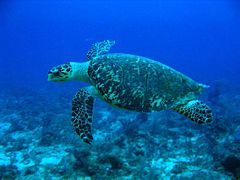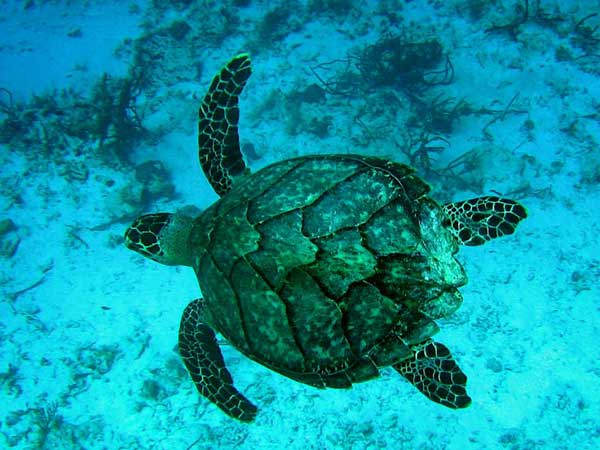Tag Archives: Hawksbill turtle
Filipino Government Lays the Smackdown on People Poaching Sea Turtles
Two years after their detainment, 13 poachers, from Vietnam, who were caught with the dead bodies of 101 endangered Hawksbill turtles (known in scientific circles as Eretmochelys imbricata) near El Nido, northern Palawan, in the Philippines, have finally been convicted and sentenced to hefty fines along with some jail time.
On the 22nd of June, The Regional Trial Court of Puerto Princesa, Branch 50, after much deliberation, decided that the Vietnamese poachers should face jail time for their heinous acts, and will receive anywhere from 6 to 18 months, plus have some hefty fines to pay.
Since the poachers have been sitting in jail since the 2nd of September 2008, the court also decided that they will only have to cough up the money for the fines.
Two Filipino gunboats apprehended the Vietnamese boat transporting the poachers five miles east of Cabaluan Island near El Nido on August the 29th 2008. In a sheer act of desperation, the 13 crew members aboard the boat tried to sink her by flooding the holds, however were preented from doing so by law enforcement officers.
When the cargo holds were explored, they discovered the corpses of 101 Hawksbill Turtles, classified as being critically endangered, which is the highest risk rating for any living animal. This rating was handed down by the IUCN, the International Union for Conservation of Nature, some time ago.
So, they did the crime, they served the time, now all that remains is for them to pay the fine… Although, is it really enough? Did the poachers learn their lesson? Or were they simply sorry they were caught?
Hawksbill turtle released back into the wild after eight months of rehabilitation
The juvenile Hawksbill turtle found near-dead 8 months ago with a plastic shopping bag lodged inside her belly has made a remarkable recovery and has now been released back into the ocean. The Hawksbill turtle is listed as Critically Endangered on the IUCN Red List of ThreatenSped ecies, so each specimen that can be rescued is important for the population.
Eight months ago the young female, who has been dubbed Alva by her caregivers, was found halfway up the beach, upside down, with her head buried in the sand, slowly dying in the sun. She was rushed to Townsville’s Reef HQ turtle hospital where x-rays revealed that a large piece of plastic stuck inside her had caused a severe gut blockage.
In addition to receiving treatment for the blockage, Alva was bathed, scrubbed and hand-fed by the turtle hospital staff who gradually nursed her back to life from the near-death experience.
“We brought it back from brink of death”, said Reef HQ aquarium acting director Fred Nucifora. “That is the miracle.”
On May 21, Alva was deemed healthy enough to return to the sea and was released into the water in the Australian Great Barrier Reef Region.
“It was emotional to say goodbye,” said Nucifora. “We’d like to think Alva turned back and gave us a heartfelt look, but it was barely a glance and, with a flick of the flipper, she was off.”

